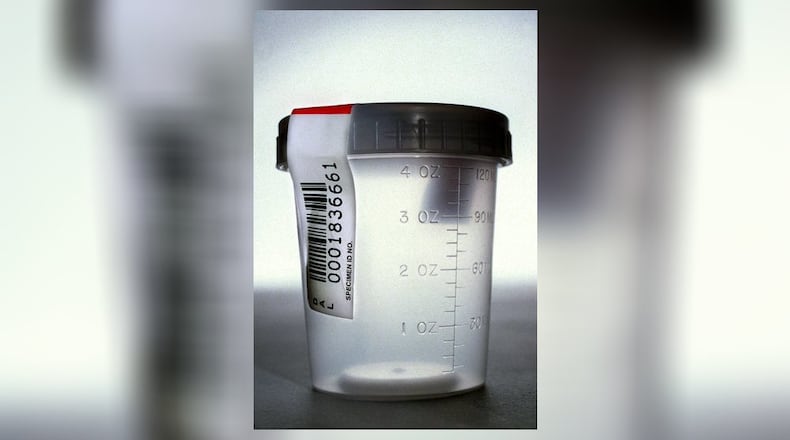The final four defendants in what federal prosecutors alleged was a $1.4 billion health care fraud have been acquitted on all charges. The criminal case apparently unraveled as jurors questioned whether there were any laws prohibiting the business transactions at issue.
Cleared were Aaron Durall, former owner of Chestatee Regional Hospital in Dahlonega; Christian Fletcher, owner of LifeBrite Laboratories in Atlanta; Neisha Zaffuto, who owned a Miami medical billing company; and Aaron Alonzo, with a hospital marketing company. They were among 10 defendants originally accused in 2018 of conspiring to use failing rural hospitals in Georgia, Florida and Missouri to bill insurers at inflated rates for urine drug testing.
The trial, in a Florida courtroom, lasted four weeks, but jurors took only a few hours to reach their verdict last week. “They heard about the money. They heard about the testing. But they wanted to know, fundamentally, was anything illegal or not,” Fletcher told the Atlanta Journal-Constitution.
“That question,” he said, “was everything.”
Despite the acquittal, Fletcher said the case was catastrophic to him and to LifeBrite Laboratories. “We are holding on by a thread,” he said. Durall also suffered significant financial consequences, his attorney said. “He is left with scars from having to go through this,” said Brian Rafferty, a former federal prosecutor now with an Atlanta law firm.
The case traces back to 2018, when insurance giant Blue Cross and Blue Shield sued Durall, his companies and two Florida business associates, contending Chestatee Regional was systematically overcharging for urine drug tests.
To help preserve rural hospitals, federal law allows them to be reimbursed at much higher rates than if bills were submitted by labs themselves. So Durall — an attorney and laboratory owner — said he tried to rescue the struggling hospital by having it run drug tests for patients of pain clinics and rehab centers. Sometimes it ran thousands of tests per month, making millions of dollars, court records show.
Amid the battle with Blue Cross, Durall closed Chestatee Regional and sold it to Northeast Georgia Health System.
In 2019, the civil case involving Durall and two Florida business associates was resolved with a confidential settlement.
The next year, federal prosecutors in Florida filed criminal charges against 10 defendants, including Durall, accusing them of conspiring to exploit rural hospitals to bilk insurers. The government claimed conspirators had billed insurers through the hospitals for about $1.4 billion for lab tests — a far larger amount than if outside labs had handled the tests. Blue Cross and other insurers weighed in on the side of prosecutors.
Others charged in addition to Durall and Fletcher included hospital managers and owners of laboratories and medical billing companies. They were Zaffuto, Alonzo, Jorge Perez, Ricardo Perez, James Porter Jr., Sean Porter and Nestor Rojas, all of Florida, and Seth Guterman, of Chicago.
Rojas pleaded guilty before last summer’s trial. Guterman left the country and is considered a fugitive, Rafferty said. The Perez brothers were convicted of conspiracy to commit health care fraud and wire fraud, health care fraud and conspiracy to commit money laundering. After the trial, Jim Porter and Sean Porter took plea deals rather than go through a second trial. Prosecutors then chose to re-try the remaining four defendants.
A key issue at last summer’s trial was insurance company data purportedly showing that defendants reported that the hospitals had tested patients in person. Instead, the government said, in most cases the testing was done by laboratories controlled by defendants and the bills passed through the hospitals.
At the new trial, Rafferty said he showed through internal company emails that the insurance companies themselves had added codes to billing records indicating that hospitals had reported testing the patients in person. The billing companies didn’t report that the tests were in-person, he said.
Rafferty said he also introduced evidence that Chestatee ran more than 90% of the screening tests it billed at the hospital’s own lab.
Fletcher’s lab had no connection to Chestatee; it ran toxicology tests on urine samples for the three other hospitals involved in the criminal case — two in Florida and one in Missouri — tests the hospitals couldn’t do themselves, Fletcher said. LifeBrite did similar tests for dozens of other hospitals, he said.
“We were contacted by the hospitals to be the hospitals’ reference lab,” he said. “We would have known nothing about the billing rates, nothing about the hospitals.”
When the case went to the jury earlier this month, the jury sent a note asking the judge whether any laws prohibit so-called pass-through billing, where a hospital bills for work done by a reference lab. The judge did not answer, saying only that he had previously given instructions on the law applicable in the case. The jury was briefly deadlocked, before returning verdicts of not guilty on all four defendants on March 21.
“We were grateful that the jury, when they said they were deadlocked ... that those who believed as we argued that there was no crime there ... were able to persuade their fellow jurors,” Rafferty said.
Essentially, he said, the case was a dispute over insurance contracts, and criminal charges should never have been filed.
A spokesman for Blue Cross and its parent company, Elevance Health, formerly known as Anthem, said the company declined to comment on either the settlement or this month’s acquittals.
Prosecutors also declined to comment, a spokesman for the U.S. Department of Justice said.
Fletcher, whose lead attorney was Steve Sadow of Atlanta, said that the defendants who were convicted got a raw deal, especially given the evidence that insurers had added the billing codes indicating that patients went to the hospitals for the lab tests.
As for those who pleaded guilty, he said they were under immense pressure, facing prison terms of up to 60 years if convicted. One, he said, pleaded out because he ran out of money he would need for his defense and has an autistic son to care for.
“I think this was a substantial miscarriage of justice,” he said.
Staff writer Ariel Hart contributed to this report.
About the Author






